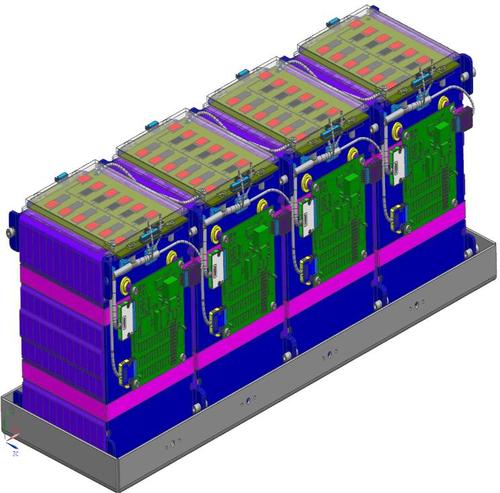Researchers Team Up for Cheaper Solar Energy Battery Storage 26571
Three UK research entities have teamed up in a partnership to develop sodium-ion cells as a low-cost alternative to lithium-ion batteries for solar energy storage.
June 20, 2016
The storage of solar energy is one of the weak spots in systems that harvest this alternative type of electricity. Now three UK research organizations -- the companies Faradion and Moixa Technology, and WMG, part of the University of Warwick -- have teamed up in a partnership to develop sodium-ion cells as a low-cost alternative to lithium-ion batteries for solar-energy storage.
Each of the entities in the partnership brings different engineering strengths to the table. Faradion is a startup eyeing innovation in the sodium-ion battery space, while Moixa specializes in smart energy storage. Researchers led by Rohit Bhagat, an associate professor of electrochemical engineering at WMG, will bring expertise in large-scale prototyping and electrode coating to the partnership.
Currently, lithium-ion batteries are used primarily for storage as part of solar energy systems, but this type of battery also represents significant costs, researchers said. Sodium-ion cells, however, can be as much as 30% less expensive to produce. Using Faradion’s technology, solar storage could be less expensive and therefore more accessible, particularly for domestic use, to help promote environmental interests, according to the company.

A 48-cell battery pack design by Williams Advanced Engineering that uses sodium-ion cells from UK company Faradion.
(Source: Faradion)
“This partnership with Moixa Technology and WMG offers a great opportunity, not just for Faradion, but for global CO2 reduction,” said Francis Massin, Faradion’s CEO. “Solar energy storage is an important growth market of the next five years and this partnership means that the UK has the opportunity to be at the forefront of technology development.”
Sodium is more abundant than lithium and therefore less expensive in terms of battery production, according to researchers. The new effort also will focus on providing that sodium-ion technology can meet the lifecycle requirements of solar energy storage. In contrast, a lead-acid battery -- another type of battery for solar storage -- would need to be replaced up to five times through the typical lifetime of a photovoltaic system.
READ MORE ARTICLES ON SOLAR ENERGY STORAGE:
“We see sodium-ion batteries offering strategic and technological advantages for solar and grid energy storage applications,” Bagat said.
The new partnership’s effort is just one of a number tackling solar energy storage, which continues to be a hotbed of research not only to make solar storage cheaper, but also a more viable option for the power grid.
While the new partnership’s work focuses on more accessible and smaller-scale solar energy storage, other efforts from companies like Ambri, as well as researchers at Harvard and other institutions, focus on the development of flow and other types of batteries for large-scale storage.
Indeed, all of this focus means there is a significant business opportunity in this market, with Lux Research predicting the market for energy storage for solar energy systems to grow to $8 billion by 2026.
Elizabeth Montalbano is a freelance writer who has written about technology and culture for more than 15 years. She has lived and worked as a professional journalist in Phoenix, San Francisco and New York City. In her free time she enjoys surfing, traveling, music, yoga and cooking. She currently resides in a village on the southwest coast of Portugal.
About the Author(s)
You May Also Like
.jpg?width=300&auto=webp&quality=80&disable=upscale)


